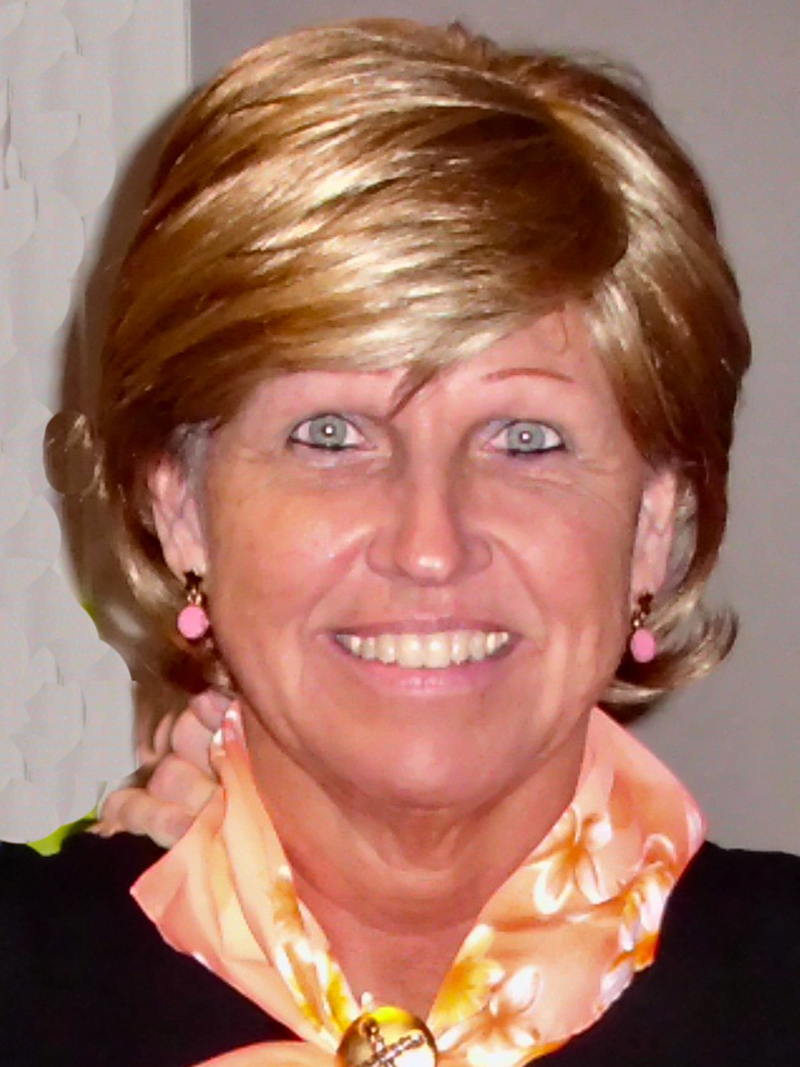Core Faculty at Virginia Commonwealth University
The International Program in Addiction Studies is made up of members from the Virginia Commonwealth University as well as King's College London and Adelaide University, Australia.
-150x137.JPG)
Mary Loos, VCU Program Director
Dr. Loos is an Professor in the Department of Psychology and an Affiliate Professor in the Department of Pharmacology and Toxicology at the Virginia Commonwealth University, where has served as the VCU Program Director for the International Programme in Addiction Studies (IPAS) since 2006. Trained as a clinical/community psychologist with research interests in developmental psychopathology, her primary focus for the past several years has been international and distance learning program development and undergraduate teaching. Dr. Loos also has an extensive background in mental health and substance abuse program evaluation, having worked in the Research and Evaluation Offices of the Virginia Department of Mental Health, Mental Retardation and Substance Abuse Services from 1999 to 2002, and as an evaluation consultant to the Virginia Olmstead Task Force in 2002 and 2003. Dr. Loos received her B.A. in political science, cum laude, from Barnard College of Columbia University in 1985 and her PhD in Clinical/Community Psychology in 1998 from the University of Maryland, College Park.

Dace Svikis, Program Co-Director
Dr. Svikis is a Professor in the Departments of Psychology, Psychiatry and Obstetrics/Gynecology at VCU. She also serves as Deputy Director, VCU Institute for Women's Health and Director of the AWHARE Program (Addiction and Women's Health: Advancing Research and Evaluation). More recently, she has assumed a leadership role in the development of an Academy of Mentors for VCU with a focus on creating a solid institutional infrastructure that supports faculty and students in the conduct of interdisciplinary clinical and translational research. Dr. Svikis' own research efforts have focused on identification and treatment of perinatal addiction, with specific attention paid to both the clinical and economic efficacy of alternative intervention strategies. From 1992-1999, while a member of the faculty at Johns Hopkins University School of Medicine in Baltimore, MD, she directed an interdisciplinary treatment program designed specifically to meet the unique needs of pregnant drug dependent women and their children. More recently, her research interests have broadened, with a focus on the translation of research to clinical practice and the study of alternative strategies to facilitate bridging this gap in the field of addictions and more broadly in women's health. She has over 100 publications and serves on a variety of NIH study sections and journal editorial boards. She is a member of the Board of Directors for the College on Problems of Drug Dependence and chairs the Credentials Committee, and she is committed to encouraging transdisciplinary research through projects that bring together faculty and students from psychology, social work, public health, medicine, OB/Gyn, psychiatry and nursing among others.
Her current research projects include a NIH-funded randomized clinical trial of an intervention for HIV/STD prevention in pregnant substance abusing women, a CDC-funded project that seeks to improve patient compliance with prenatal care using an intervention model that includes health system navigators, behavioral incentives and practitioner training in patient communication and cultural diversity, a NIDA-funded RCT that compares computer-directed and counselor-delivered screening and brief intervention models in men and women attending a primary care clinic; a multi-site study of HIV rapid testing and counseling strategies to encourage patient testing; and several NIH- and foundation-funded studies of novel interventions for pregnant and post-partum women and their children.

Bob Balster, VCU Program Founder
Dr. Balster is the Luther A. Butler Professor of Pharmacology and Toxicology, and Research Professor of Psychology and Psychiatry at Virginia Commonwealth University, Medical College of Virginia campus in Richmond. He is the Coordinator for VCU site for the Humphrey Fellowship Program in Substance Abuse Prevention, Treatment and Policy. Dr. Balster is a Fellow of the American College of Neuropsychopharmacology, the College on Problems of Drug Dependence (CPDD), and the American Psychological Association. Dr. Balster is a founder and past Director of VCU's Institute for Drug and Alcohol studies, a recent Past‑President of the CPDD and a former member of the WHO Expert Advisory Panel on Drug Dependence (Dependence Liability Evaluation). Previous appointments also include Chair of the Drug Abuse Clinical and Behavior Study Section at the National Institute on Drug Abuse (NIDA), Chair of the FDA Drug Abuse Advisory Committee, and Chair of the Board of Scientific Affairs of the American Psychological Association. From 1998-2010 he was Editor-in-Chief of the scientific journal Drug and Alcohol Dependence and currently serves on the editorial boards of five journals.
In 2000, Dr. Balster received the first annual Mentorship Award of the College on Problems of Drug Dependence for his lifetime achievements in training and nurturing young drug abuse scientists in his laboratories. Other awards include the VCU School of Medicine Faculty Teaching Excellence Award (2003), the Excellence in Mentorship Award from the NIDA International Program (2006), the American Psychological Association Award for Distinguished Service to Psychological Science (2006), the Brady-Schuster Award from the Division of Psychopharmacology and Substance Abuse of the American Psychological Association (2007) and the CPDD Nathan B. Eddy Award (2009).
The principal areas of Dr. Balster's research program are neurobehavioral pharmacology and substance abuse. His primary interests are in phencyclidine, ketamine and inhalant abuse. He has also worked in the areas of marijuana, opiate, tobacco and alcohol research. He also has extensive experience in drug abuse potential evaluation and in the drug approval process for psychiatric, neurologic and addiction treatment products. He has also worked in neurobehavioral toxicology. Dr. Balster’s research program has been continuously funded by the National Institutes of Health since 1976 and he has been the recipient of a NIDA MERIT Award. Dr. Balster has published over 260 papers in scientific journals, edited two books and authored over 35 book chapters. He also has experience in the area of drug abuse policy and has testified before Congress and the Virginia General Assembly. He served as the Public Policy Officer for the College on Problems of Drug Dependence and on the Steering Committee for a CPDD-sponsored Fall 2002 meeting on regulatory aspects of drug abuse potential assessment which involved US regulatory agencies and representatives of the pharmaceutical industry. He recently Co-Chaired the Planning Committee for a 2008 national meeting on the use of risk management and post-marketing surveillance in limiting prescription drug abuse.

Charles O'Keeffe, Founder
Charles O´Keeffe is currently a professor in the Department of Pharmacology and Toxicology at Virginia Commonwealth University (VCU), as well as the Institute for Drug and Alcohol Studies at VCU. Previously, he served as the president and CEO of Reckett Benckiser Pharmaceuticals Inc, as well as the president of Washington Reference Laboratories, which was the largest clinical toxicology laboratory in the nation, providing urine toxicology services to the Department of Defense during the Vietnam War. He has also served in the White House under three presidents; as Advisor, Special Assistant for International Health, and as Deputy Director of the Office of Drug Abuse Policy, he was responsible for encouraging the U.S. Senate to ratify the Convention on Psychotropic Substances. Mr. O´Keeffe has served on U.S. delegations to the World Health Assembly and the UN Commission on Narcotic Drugs. He has served as expert advisor to the WHO, UNFDAC, UNSDRI, and other UN agencies. Mr. O´Keeffe was also instrumental in assisting the Congress to reach consensus on the Drug Addiction Treatment Act of 2000, and he also developed the first child-resistant, abuse-resistant vehicle for dispensing methadone as president of Drug Abuse Rehabilitation Services. Mr. O'Keeffe did his undergraduate work in pharmacy and chemistry at the Medical College of Virginia School of Pharmacy and Temple University and earned his MBA at Loyola.

Lisa B. Phipps, PharmD, PhD VCU Education Coordinator, International Programme in Addiction Studies
Dr. Phipps has a long history with Virginia Commonwealth University, having served in various roles here including: full time faculty in the School of Pharmacy, adjunct faculty in the Department of Chemistry, Investigational Drug Pharmacist, Hazardous Materials Coordinator, and as a liaison to the medical campus for the Office of Online Academic Programs.
She earned her Bachelor’s in Biology, PharmD, and PhD degrees at VCU, completed a post-doctoral fellowship with Dr. Dace Svikis, and continues to be active in research with the AWHARE (Addiction and Women’s Health: Advancing Research and Evaluation) Program, serving as the Director of Student Research and Training. Her research interests include integrative health practices and models, pain treatment, substance use, women’s mental health, cannabinoids, and health sciences education. She teaches topics such as evidence-based medicine, integrative health, drugs of abuse, medication-assisted therapy for substance use disorders, and regulation of dietary supplements. Dr. Phipps also serves as Director of Research Development and Learning Innovation at VCU’s Institute for Women’s Health, where she identifies funding opportunities and facilitates research development and grant work groups, working closely with the other Institute directors, and works to organize and develop innovative learning opportunities for students in the area of Women’s Health. In her role as VCU IPAS Education Coordinator, she has both administrative and teaching responsibilities, including assisting with admissions and teaching topics in research methods, the biological basis of addiction, and pharmacy-related areas.


